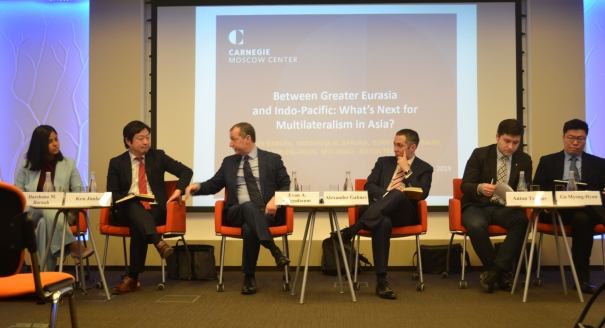Registration
You will receive an email confirming your registration.
Over the course of the last two years, security risks across Asia have been on the rise. The region’s future is marred with uncertainty that is rooted in the revival of great power competition, trade wars, and the unpredictable policies of U.S. President Donald Trump. Different powers each promote their visions for this vast region. The U.S., together with its Asian allies and partners, is advocating for a free and open Indo-Pacific. China is pushing its mammoth Belt and Road Initiative, while Russia is promoting a Partnership for Greater Eurasia.
- What do these competing visions represent?
- Are they driven by strategic calculations in key capitals, or are they merely the products of domestic powerplays among various bureaucracies?
- Is the American vision of the Indo-Pacific a threat for Russia and China?
- And is a multilateral security framework in Asia that will uphold peace feasible?
These and other questions were discussed by a panel of leading scholars from Russia, the U.S., India, Japan, and South Korea. The event was organized by the Carnegie Moscow Center and the Russian International Affairs Council.
Audio in English
Audio in Russian
Speakers
Darshana M. Baruah is associate director at Carnegie India (New Delhi, India).
Go Myong-Hyun is a research fellow at the Asan Institute for Policy Studies (Seoul, South Korea).
Evan A. Feigenbaum is a vice president for studies at the Carnegie Endowment for International Peace (Washington DC, United States).
Ken Jimbo is a senior fellow at the Tokyo Foundation for Policy Research (Tokyo, Japan).
Anton Tsvetov is a senior fellow at the Center for Strategic Research (Moscow, Russia).
Moderator
Alexander Gabuev is a senior fellow and the chair of the Russia in the Asia-Pacific Program at the Carnegie Moscow Center.
